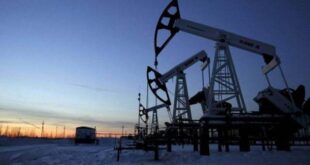Europe’s looming winter fuel crisis has deepened after Russia shut down a key gas pipeline to Germany, claiming the indefinite stoppage was due to what experts say is a minor oil leak.
Nord Stream 1, which runs under the Baltic Sea, had been due to resume operating on Saturday after a three-day halt for maintenance.
But Gazprom, the state-controlled Russian gas exporter, on Friday said it could not safely restart deliveries until it had fixed an oil leak in a keyturbine. It did not give a new time frame.
However, Siemens Energy, which normally services Nord Stream 1 turbines, said such a leak did not represent a valid reason to stop the pipeline from operating.
It also said the Portovaya compressor station, where the leak was discovered, has other turbines that would allow Nord Stream to re-start normal operations.
“Such leaks do not normally affect the operation of a turbine and can be sealed on site. It is a routine procedure within the scope of maintenance work,” the company said.
An economic weapon
Moscow has blamed sanctions, imposed by the West after Russia invaded Ukraine, for hampering routine operations and maintenance of Nord Stream 1. Brussels says this is a pretext and Russia is using gas as an economic weapon to retaliate.
Russia has denied previous allegations of using gas as an economic weapon or manipulating the gas market.
Wholesale gas prices have rocketed 400 per cent since August 2021, hurting European industry and households as demand recovered from the COVID-19 pandemic and because of the Ukraine crisis.
Former Russian President Dmitry Medvedev said Moscow would turn off supplies to Europe if Brussels imposed such a cap.
“There will simply be no Russian gas in Europe,” he wrote on the Telegram app in response to Von der Leyen.
Reduced deliveries via Nord Stream, alongside lower gas flows via Ukraine, another major route, have already left European states struggling to refill storage tanks for winter and prompted many to trigger emergency plans that could lead to energy rationing and stoking concerns about recession.
Group of Seven finance ministers agreed on Friday to put a price cap on Russian oil exports. Moscow said it would halt oil sales to countries imposing the cap, adding that the move would destabilise oil markets. Russia is the world’s biggest exporter of crude and fuel combined.
Kremlin spokesman Dmitry Peskov suggested earlier on Friday there could be more disruptions to deliveries via Nord Stream 1.
Further disruptions likely
“It’s not the fault of Gazprom that the resources are missing. Therefore, the reliability of the entire system is at risk,” he said when asked if more outages could be expected.
Gazprom Chief Executive Alexei Miller said on Wednesday that sanctions meant Siemens could not carry out regular maintenance.
European Union governments have been preparing for the possibility that Russia stops deliveries completely, after Gazprom first reduced flows in June and then again in July.
This week’s maintenance was announced at short notice.
Germany, which is particularly reliant on Russian supplies, has been racing to fill its storage tanks before winter. That storage is now nearly 85 per cent full, but Berlin says reaching a 95 per cent target by Nov. 1 will be tough unless companies and households use less fuel.
The EU has exceeded its 80 per cent target for storage to be full by Oct. 1, ready for when heating usage picks up, but that may not sustain Europe through the winter if Russia keeps the taps closed.
Some energy-intensive European companies, such as fertiliser and aluminium producers, have already cut output due to sky-high power prices, while some domestic consumers have reined in usage to save on escalating energy bills.

 Iran Energy News Oil, Gas, Petrochemical and Energy Field Specialized Channel
Iran Energy News Oil, Gas, Petrochemical and Energy Field Specialized Channel



